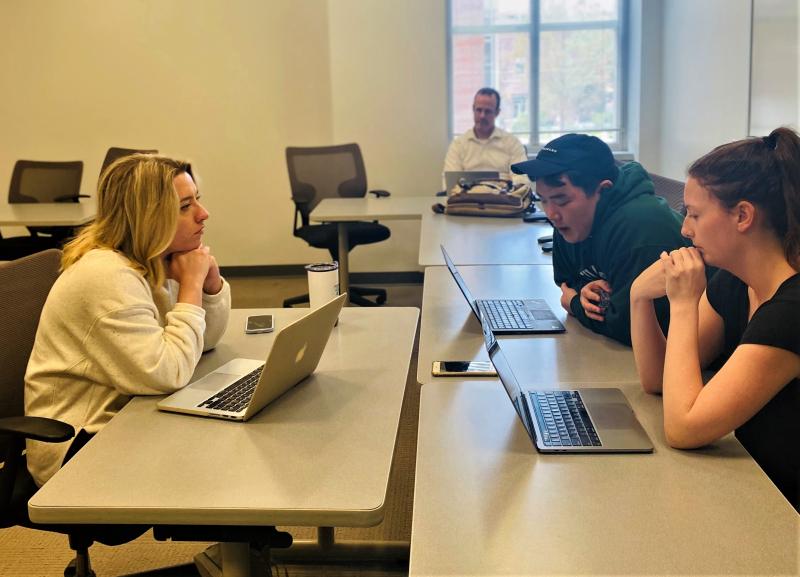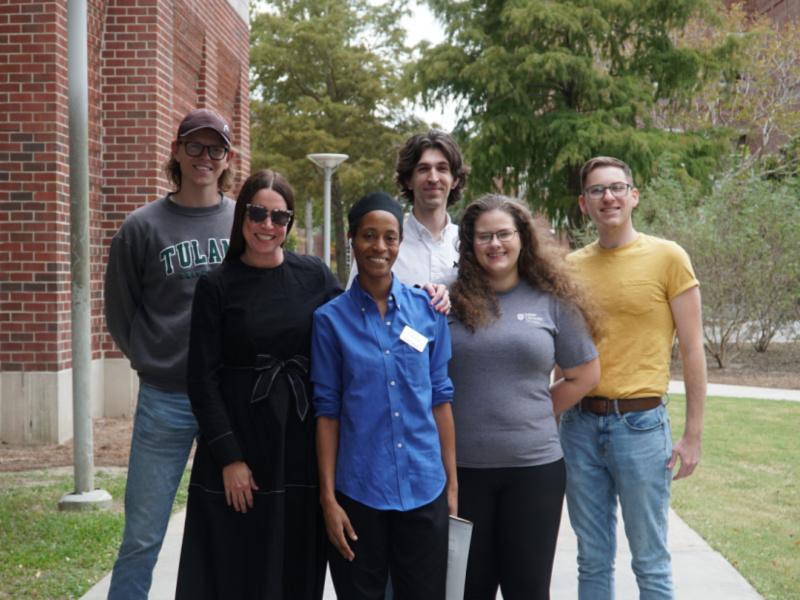Civil Rights clinic notches wins in battling housing discrimination
In the past year the Tulane Civil Rights and Federal Practice Clinic has represented clients in several cases alleging violations of the Fair Housing Act.
Although that law was passed more than 50 years ago, housing discrimination remains prevalent. A recent study conducted by the Louisiana Fair Housing Action Center (LaFHAC) found that prospective African American tenants experienced housing discrimination 53 percent of the time when applying for rental housing in Louisiana, Mississippi, and Texas.
The Clinic continues to handle a significant number of housing discrimination cases as part of its caseload. Clients come through court appointments, referrals, and word of mouth, and their numbers show no signs of slowing, which, according to Professor and Clinic Director Lucia Blacksher Ranier, “means there is still a lot of work to do in our community when it comes to fair housing for all.”
Clinic student attorneys have represented renters who have disabilities, those who have minor children, and, in one notable case, victims of a New Orleans landlord who routinely sexually harassed his female renters.
Among the recent highlights:
- Clinic student attorneys and their professors represented a disabled woman, Leah Heilprin, who sought to rent from Tonti Management, a landlord with several local apartment complexes. Despite the willingness of her sister, an attorney, and her mother to co-sign on the lease, Tonti told the family that only full-time students could have co-signers and that only parents could serve as co-signers. Heilprin, a part-time student, was denied. The Clinic and the Louisiana Fair Housing Action Center (LaHFAC) filed a lawsuit on Heilprin’s behalf in November 2020, and student attorneys conducted discovery and motion practice before Tonti settled the case.
- In a widely publicized case, New Orleans landlord Jerry Kelly had previously settled a case brought by LaFHAC accusing him of renting only to “skinny white girls,” inappropriately entering their homes, and asking for sexual favors in exchange for reduced rent. The Clinic and its client LaFHAC now monitor Kelly’s compliance with their settlement to ensure the notorious landlord has independent property managers and is not directly communicating with his tenants except in certain circumstances.
- Another Clinic client, Velma Lee, was denied housing for her family—husband and two kids—by JM Property Holdings, LLC because of the company’s policy against minor children of the opposite sex sharing a bedroom. Student attorneys represented Lee as she concluded administrative proceedings, attempted to negotiate with the landlord, and ultimately filed suit in federal court. Students had extensive motion and discovery opportunities and practice, including a motion to compel that resulted in an order requiring the landlord to pay some of Lee’s attorney fees. After a year of litigation, the company settled.
- The Clinic is co-counsel in a case involving a class action by Filipino offshore workers who allege that Grand Isle Shipyards brought them to Louisiana to work as welders and pipefitters but then underpaid them, unreasonably restricted their movements, and otherwise treated them worse than local and U.S.-born workers. The Clinic is lead counsel on the workers’ fair housing claim, where they allege that the company discriminated against them in the housing it provided. Among other issues, U.S.-born workers could come and go as they pleased, but Filipino workers could not leave the building without risking deportation. When COVID hit, Filipino workers were quarantined to a boat with limited medical supplies while U.S.-born workers were sent to hotels. And when Hurricane Ida threatened, only Filipino workers were left to ride out the storm while the others evacuated. The company has filed a counterclaim accusing the workers of defamation. The litigation is pending and has not yet been set for trial.
Housing discrimination comes in many forms, so a cookie-cutter approach does not work and student attorneys, all in their third year, must develop a strategy tailored to each client’s goals, said Professor Sam Brandao (L'12) who is the supervising attorney in many of these cases.

Sam Brandao supervising.
And because those goals invariably include making sure this doesn’t happen to someone else, the student attorneys must learn why and how the discrimination happened, not just who was responsible, he said. LaFHAC’s data show that race-based housing discrimination remains a problem across the Gulf South. And the problem persists nationwide: according to HUD’s most recent annual report, it received 10,237 complaints of housing discrimination in the fiscal year 2020, of which 4,612 were on the basis of disability and 1,996 on the basis of race.
By teaching law students the basics of how to manage federal discrimination cases like these, the clinic is providing skills training so that they are work-ready, said Brandao.
“The threat of housing discrimination may not be as obvious, but it hasn’t disappeared. We are excited to continue to work with our students and clients to get justice in these difficult, rewarding cases,” he said.
Blacksher Ranier added, “our students bring so much energy to this work, and our clients are amazing people—it’s an honor to work with them, and to continue this fight.”
Logan Fontenot, a third-year law student who worked on the Lee case, said he learned how to take part in settlement discussions with the court, something law students rarely get to do.
"Few students get an opportunity like this, and there are just as few opportunities to learn and apply the skills necessary in settlement negotiations while still in law school," Fontenot said. "While learning and practicing these skills was intellectually fulfilling, it's personally and professionally fulfilling knowing that we employed these skills successfully in Ms. Lee's case, achieving our client's goals and securing a settlement payment to compensate her and her family for the unlawful discrimination that they experienced. "

